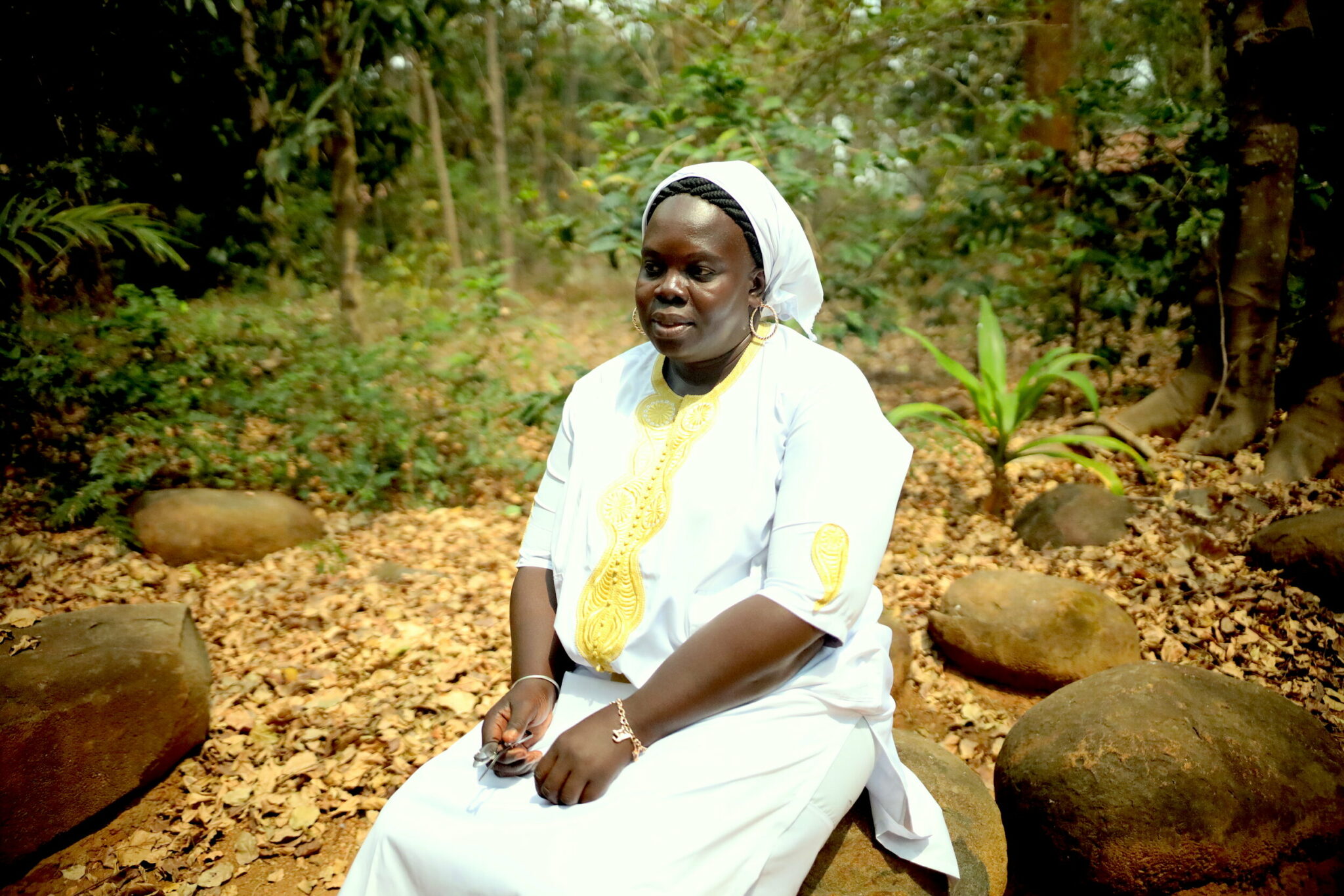Mariama Sonko, president of the pan-African organization Nous Sommes la Solution, shares how women farmers have turned entrepreneurs to revive culinary traditions that would otherwise be lost.
There is an ongoing problem in Senegal that is undermining the health of the population: the widespread consumption of industrially produced stock cubes. Since the ’70s and ’80s, there has been massive growth in the industrial broth market in Senegal and some other West African countries, aided by persistent advertising on TV and radio. This has led to an unconscious overuse of these industrially produced stock cubes in meals by Senegalese households.
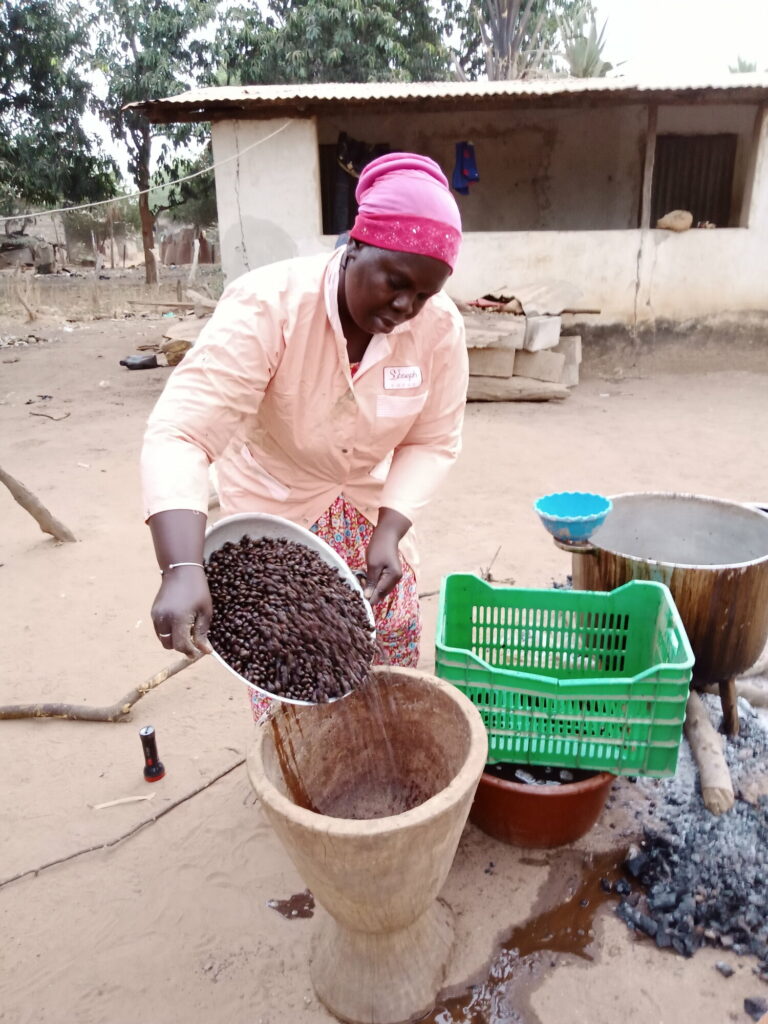
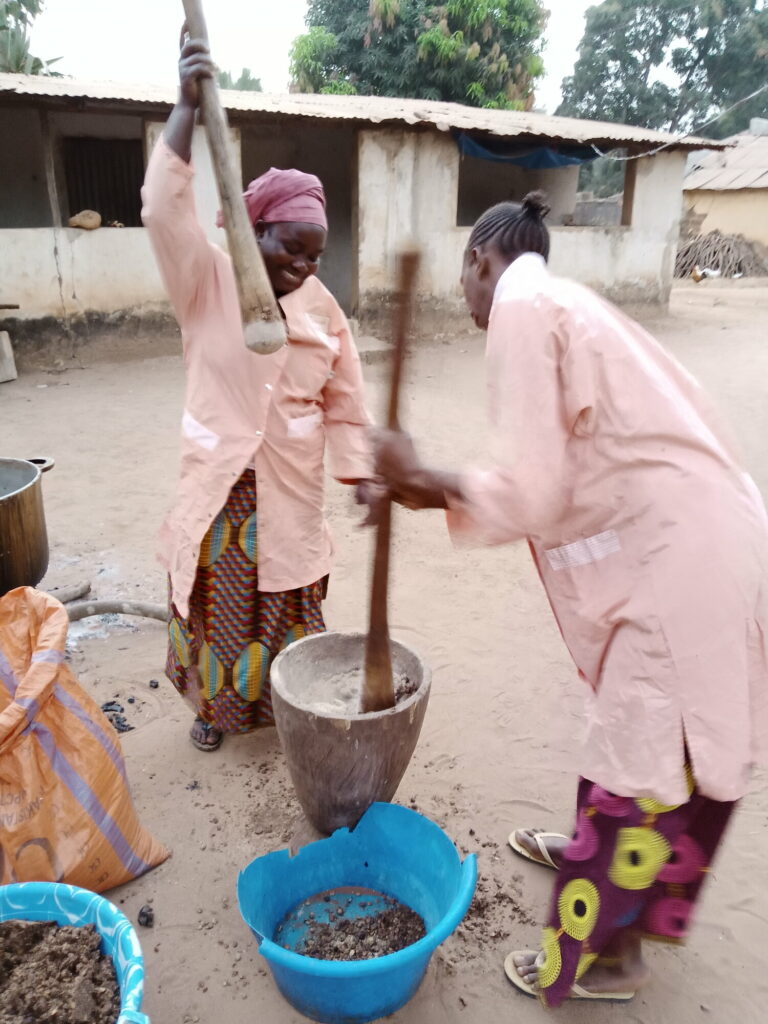
(According to a report from Reuters, industrially produced stock cubes have transformed cooking across the West African region, becoming an essential ingredient in many everyday dishes, including the Ivory Coast’s “poulet braisé” and spicy “jollof rice” in Nigeria. Nestlé Maggi dominates West Africa’s stock cube market, valued at $375 million by market research firm Fact.MR.)
Research indicates that home cooks now use five stock cubes in every dish. The cubes are extremely high in salt (40 to 50% of the recommended daily intake, according to Florence Foucaut, member of the French nutritionists’ association, Association Française des Diététiciens Nutritionnistes, AFDN.) So there has been an uptick in the frequency and occurrence of diseases, for example cardiovascular disease, hypertension, and kidney failure, which were previously unknown in most communities, especially in rural areas. These commercially produced cubes are causing diseases that West African populations did not even know about.
It is this spread of industrial bouillon cubes that led us to propose a natural alternative with natural products, using the ingredients and spices that were traditionally used before the ’70s. The leaders of the NSS movement in southern Senegal have been working together to promote the consumption of more locally produced healthy foods. Now, the rural women producers offer a stock cube we call Sum Pak in our localities.
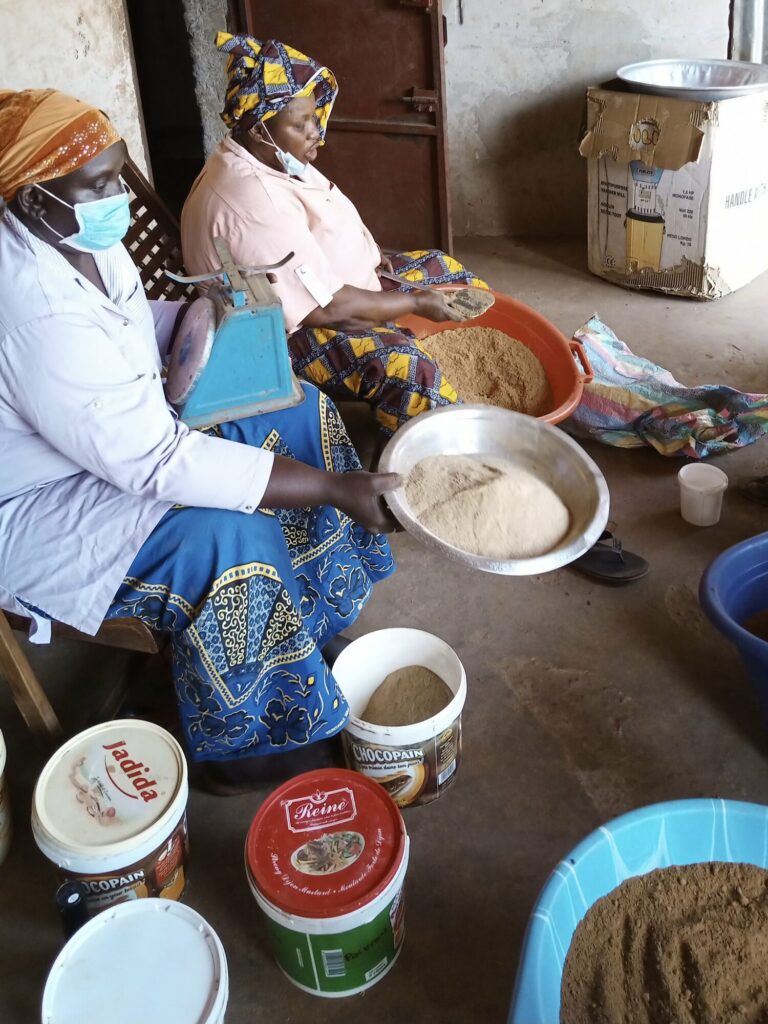
Sum Pak is a flavor enhancer produced naturally without chemical inputs. It is rich in proteins, minerals and other nutrients beneficial to health. We offer two types of broths: the Shrimp Sum Pak, made with shrimp, dried fish, green onion leaves, salt, garlic, bell pepper, chilli, white sorrel calyx, lemon juice, bay leaves and ginger. The second contains the same ingredients as those mentioned above, except that shrimp is replaced by nététou. (Nététou or Soumbala is a condiment frequently used in traditional West African cooking. It is a pungent, fermented bean paste made from the fruit of the African locust bean, or Néré tree).
To make nététou or soumbala, we use large pots to boil the néré nuts and then use a pestle to peel the hull from the seeds in a mortar containing rice bran. (Traditionally we would use fine sand for this step, but now we prefer to use rice bran.) We wash and dry the ingredients on tables with screens to ensure that it is free of any impurities. Then we use a mill to grind it into a powder. We mix the ingredients according to a traditional recipe, and then we season with lemon juice, which helps to preserve the product. Then we package and label the products before distributing them for the market. The process is very hard work and takes the women a few days.
The use of this authentic seasoning enhances the taste of our meals, provides us with nutrients and improves our health and nutrition. Local production—with the installation of small shrimp-drying manufacturing units, for instance—enables us to create jobs and improve the income of women producers. It allows us to promote local know-how and increase the recognition and appreciation of local products, which in turn, encourages the protection of our local environment—when we value our foods, we care about maintaining the indigenous Néré trees that are in the process of disappearing.
As part of our efforts to promote this product, we have led awareness-raising sessions with peasant leaders about the dangers of the excessive use of industrialized broths and its impact on the health of the population. We have conducted workshops with grassroots facilitators on the importance of promoting local food products. We have trained peasant leaders on the production of Sum Pak natural broths and its use in the kitchen. Also, we have worked with community radio hosts and peasant leaders to promote Sum Pak over the radio in four local languages (Diola, French, Wolof and Mandingo). We are setting up culinary contests to encourage women to prepare appealing creations to attract the consumer, yet filled with nutrients to ensure health. We organize tasting sessions, exhibitions and sales during local and national forums on peasant seeds, agroecology, and food sovereignty, and during fairs and festivals celebrating agroecology, rural women and special foods.
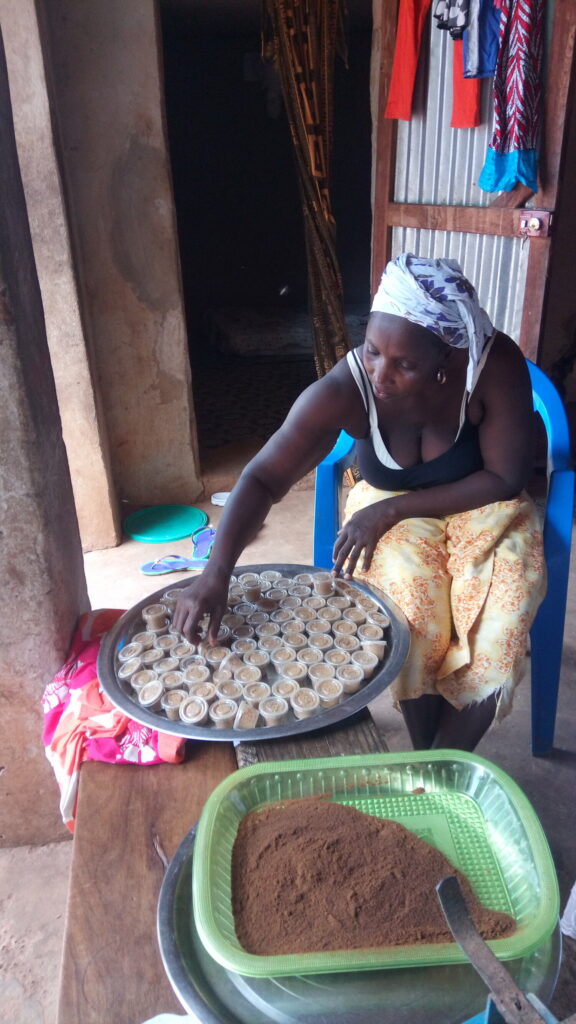
We are part of a network of seven countries, and our sisters who are in other countries would like for us to share more about our experience in the production of our natural broths. Another notable success is that now we see that these natural broths are being accepted well by consumers. Currently the demand is higher than the supply; we can’t produce enough for the consumers in Senegal.
Mariama Sonko made a presentation at AFSA’s 3rd Biennial Food System Conference and Celebration (27-29 October 2020). Her talk has been translated from English to French and lightly edited for clarity and length. You can watch the full recording here. You can find more information on the preparation of soumbala here.
Photographs courtesy Rucha Chitnis and Nous Sommes La Solution.
